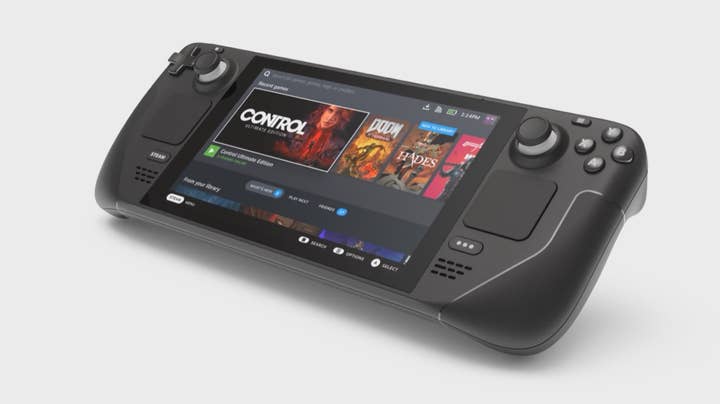Gabe Newell unconcerned about consolidation
As Steam Deck debuts, Valve head says customer preferences can keep PC an open platform, NFT crowd are "just not people you really are wanting to be doing business with"
Valve co-founder Gabe Newell doesn't seem overly concerned about the recent wave of industry consolidation.
Speaking with Rock Paper Shotgun for the launch of its Steam Deck handheld, Newell he was "more on the skeptical side" of what value consolidation brings, saying that these unions ultimately need to be creating more value for customers and developers.
"If you aren't doing something like that, then those sorts of acquisitions and consolidations don't end up positively," Newell said. "And if you do do it, then you know, good, you're making the gaming market better."
Newell said he doesn't see evidence that people are pushing toward closed platforms, and added he doesn't believe "the PC industry will tolerate it," nor does he expect consolidation to lead to games being unavailable on Steam Deck or PC.
"People like the PC and in spite of lots of people preferring other outcomes, PC gaming continues to improve year after year after year, the relative growth versus other closed and proprietary platforms continues to get better," Newell said.
He was also asked about the company's stance on blockchain gaming and NFTs, which Valve does not allow on Steam.
Newell said blockchain technology was interesting, and some of the ideas blockchain advocates are touting -- such as ownership of digital items -- are reasonable.
"The people in the space, though, tend to be involved in a lot of criminal activity and a lot of sketchy behaviours," Newell said, adding, "With the actors that are currently in this NFT space, they're just not people you really are wanting to be doing business with. That doesn't say anything about the underlying technology, it's just a reflection of the people right now who are viewing it as an opportunity to rip customers off, or engage in money laundering, or other things like that."
He noted that Valve previously accepted cryptocurrency payments on Steam, but stopped after it found the resulting price volatility was a problem for consumers, and the "vast majority" of cryptocurrency transactions it processed were fraudulent.
As for the Steam Deck, Newell said he was happy with how the handheld has turned out, although he admitted that Valve believed the price point -- $399 for the lowest-end model -- would be more important than it ended up being.
"I think we obsessed about it very hard," Newell said. "And then the people who preorder it are all buying the most expensive SKU, way more so than we expected, so the signal that we're getting from customers is that they would have preferred... I mean, not preferred, we're definitely selling a lot of the entry-level SKU. But if you'd asked me, I would have thought it was 60-70% of that were going to be the low-end SKU and it's sort of reversed."

